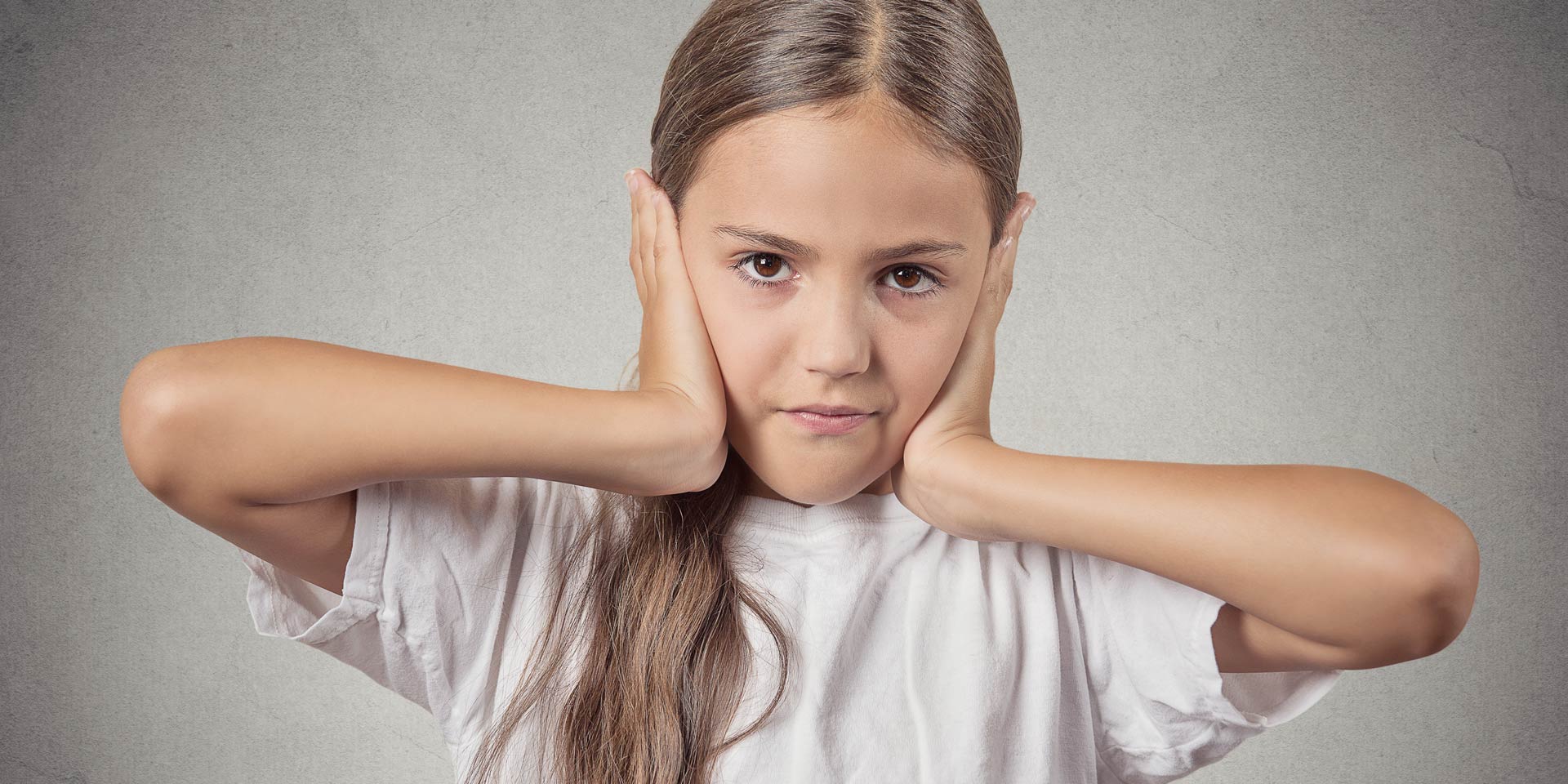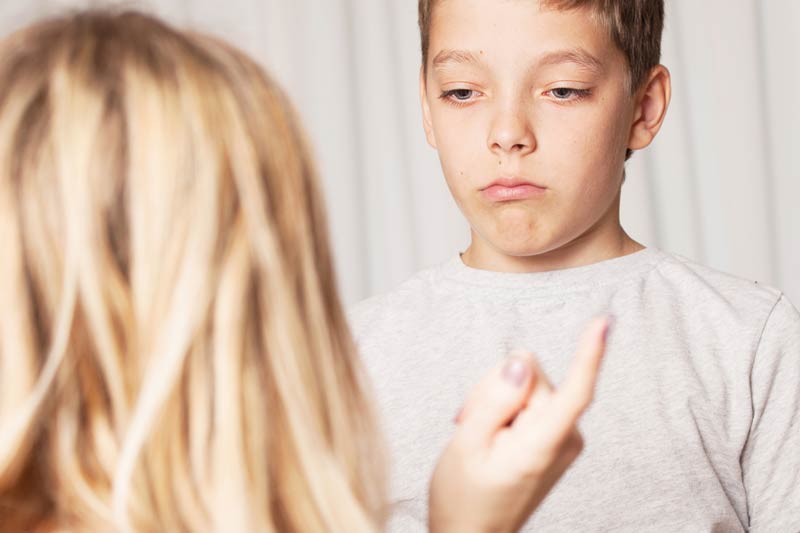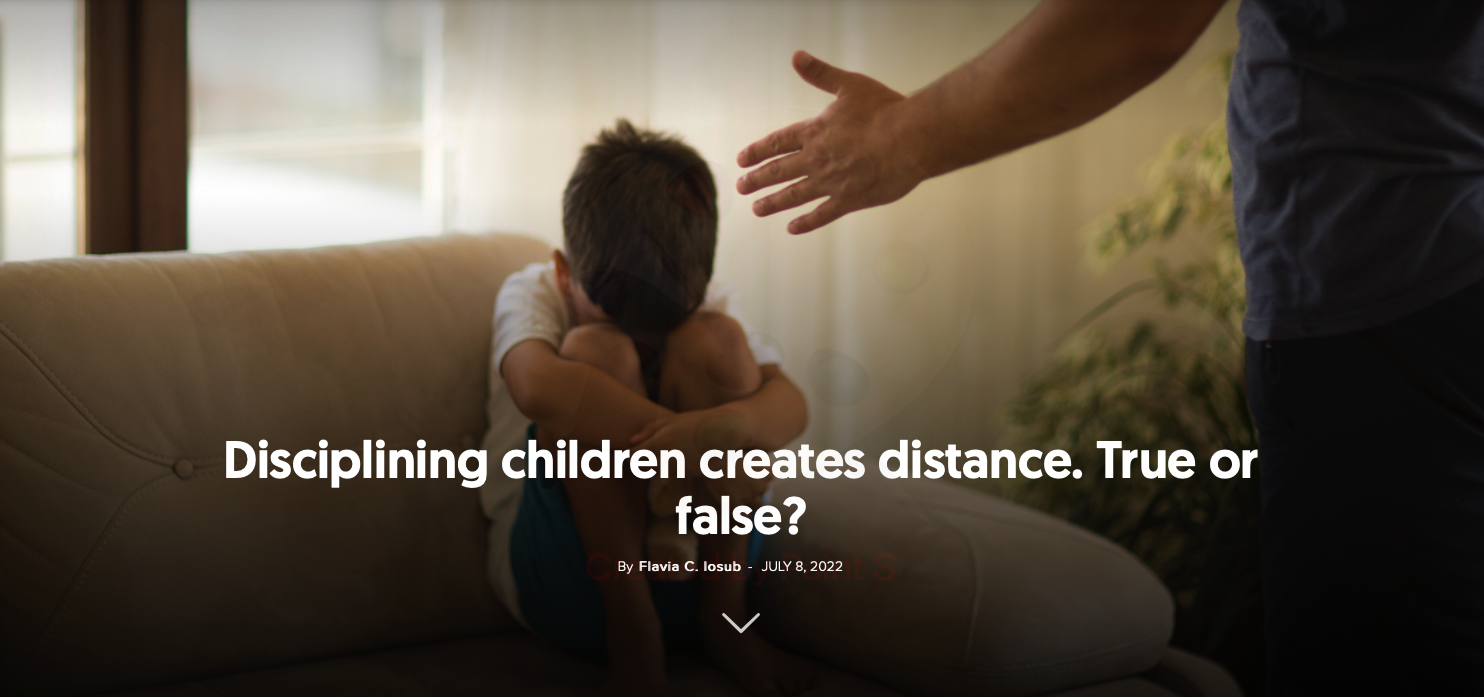“The way we talk to our children becomes their inner voice” (Peggy O’Mara).
Parents sometimes succumb to the urge to shout at their children—out of impulse, out of an irresistible tendency to recreate a pattern of communication to which they are accustomed, or simply because they are overwhelmed by the multitude of tasks they rush through on a daily basis. Before this mode of communication can go on autopilot, they must be aware that every word and tone of voice has an impact on the future adult they are raising.
In an article that most parents would read with a sense of déjà vu, Rachel Macy Stafford writes about how easy it is to lose control when the set schedule intersects with a child’s temperament.
After the effort to look presentable had been successfully completed by all family members in the house, as they headed out the door, the eldest daughter’s final trip to the bathroom resulted in a distressing announcement. The toilet was blocked, and it took the mother’s watchful eye only two seconds to scan the situation and discover the cause of the last-minute inconvenience—one of the children had thought it would be funny to line the inside of the bowl with an entire roll of toilet paper. Holding back her sighs and moralising comments, Rachel set off in search of a plunger that would solve the problem—provided, of course, that it could first be retrieved from the mysterious depths in which it had been hidden.
As the bubble of frustration snowballed over one slightly compromised evening, the mother’s patience grew dangerously thin—and as she triumphantly climbed the stairs, precious plunger in hand, a familiar sound shattered the last vestiges of calm.
Terribly bored by the wait imposed by the incident, the youngest had decided to do her bit by pressing the button on the water tank… A frightened child in need of a change of clothes in the middle of a bathroom flooded with foul water was the last thing Rachel wanted to see as she plunged into the disaster in her best boots. Uncontrollable screams and lightning bolts shot from the mother’s eyes at the guilty little girl, who was barely aware of the connection between her life-saving solution and the wet disaster she had found herself in. Later, when all had come full circle, including the maternal rage that had unleashed decibels beyond any acceptable threshold, Rachel apologised to her daughter. And during the hug that sealed the reconciliation, the author recalled her day—including the interview she had given to a national newspaper just six hours earlier about parental self-control.
If Rachel strikes you as a monument to hypocrisy, and the bathroom incident as an example of parental failure to manage a tense moment, there’s a second perspective that exhausted parents who fall back on flawed but familiar parenting methods could talk about for hours.

Reasons for using a maladaptive communication model
“The greatest advantage of not having children is that you can go on thinking that you are a nice person. Once you have children, you understand how wars start” (Fay Weldon).
Two and a half years previously, Rachel’s handling of this and other equally mundane crises would have been far more flawed. Not only would she have failed to stop screaming, she would have ruined the rest of the evening by refusing to leave the house, all the while vacillating between feelings of guilt and shame, never once considering the option of apologising to her children.
In fact, Rachel realised that the girls’ disobedience or mischief was just the last straw that broke the camel’s back: too many to-do lists, deadlines to meet, and a destabilising dose of perfectionism. Knowing that this wasn’t the model of motherhood her children wanted—or that she was happy with—Rachel tried to reorder her priorities, to take the pressure off the day-to-day and to transform herself from a parent who frightened children to one who offered predictability and support.
“I haven’t met a mom yet that hasn’t yelled at their kid when she was stressed out and running late,” says Lynn Zakeri, who works as a social worker in Skokie, Illinois. Almost all parents seem to yell at their children—to a greater or lesser extent—even though they admit that this method doesn’t work, points out sociologist Anne Karpf, who in an article presents testimonies of mothers who admit that they often yell at their children and feel bad about it. It’s like a shameful family secret they wouldn’t share with anyone without the protection of anonymity, which is why they said their stories shouldn’t have real names attached to them.
Cathy confesses that she shouted a lot at her firstborn, whom she raised without any help, and less at her youngest, because she had someone to share the daily chores with. Pippa loses control when the children stop her from doing what she needs to do; Alice has identified a whole host of reasons and circumstances that can lead to a verbal outburst: increased fatigue, high expectations of the children or anger at herself.
From her own experience, Karpf knows that the most vulnerable moments are when she’s struggling with too many tasks to do in too little time, but also when the children invade the last boundaries of her personal time and space, following her like a moving tail even when she retreats to the bathroom. Analysing the extent to which it is unavoidable for parents to raise their voices, the sociologist points out that there are families where the decibels do not escalate, but where communication is kept at a reasonable level.
Arguably, angry yelling has replaced the classic slap, points out Amy McCready, parenting expert and founder of the PositiveParentingSolutions webinar, not because it actually works, but because parents find that none of their disciplining methods are working, and this makes them very frustrated. And this category includes very different types of parents—from those who have become accustomed to yelling when they want to correct their children’s behaviour, to those who manage to address problems tactfully most of the time. Still, parental calm can also break down in adults who are trying to raise their children gently, says Jackie Klein, a suburban Oregon mom who enthusiastically supports her children’s hobbies, spends time with them and reads extensively about child development. While she manages to keep a level head 90 per cent of the time, even when her children make bad choices, she can’t seem to rein in the other 10 per cent when she loses control.
While parents can cite countless reasons for verbal slips, there’s only one reason underneath the surface, says[1] Jennifer Lehr, author of ParentSpeak: What’s Wrong with How We Talk to Our Children—and What to Say Instead. The shouting is a sign that you can’t control yourself, that you don’t have better tools for relating, and that you probably don’t even know where to look for them because you’ve picked up this pattern—which you appeal to but which makes you feel guilty—from your own parents. And behind the anger, which rears its dragon’s head at the most unexpected times, there may be clusters of fears—the champion of which is probably the fear that you are not the good parent you wish you were, and that this will have worrying effects on your children in the future.
Lehr recounts how her friend Michelle confided in her that in her case the verbal outbursts had become a full-blown addiction—it’s easy to start raising your voice when you feel things are getting out of control, but it’s extremely hard to stop, even when you understand that you’re trapped in a toxic communication pattern. The difficulty of stopping the rollercoaster of this addiction, which can result in a child becoming immune to a parent’s verbal outbursts, is described by Jenny Riley, one of the mothers interviewed by Karpf: “The more you shout, the less they listen, and so the louder you have to shout as the years go by—depressing, isn’t it ?”

The characteristics of non-traumatising yelling
The justifications offered by parents who admit that they can’t help but yell at their children from time to time range from the excuse that their offspring don’t respond to more reasonable methods of discipline, to blaming the child for playing the role of agent provocateur, to the consolation that a higher pitched voice can’t hurt a child in the way that, say, a smack would.
However flimsy these justifications may be, the truth is that not just any high-pitched voice can harm children, at least according to some experts.
Psychiatrist Sebastian Kraemer says that a parent’s verbal outbursts can’t be considered abuse—there’s a difference in degree and proportion. Only when shouting becomes the norm of communication in a family and when the parental environment is devoid of affection can harmful effects be expected, says the psychiatrist. The age of the child also makes a difference: a young child will not be able to properly decode a parent’s frustration and risks interpreting it as rejection.
It’s quite unrealistic to expect that voices won’t be raised from time to time in a family, given all the stress that comes with relationships, even close ones, says Suzie Hayman, spokeswoman for the charity Family Lives. Raising your voice from time to time doesn’t harm a child’s wellbeing, says Hayman—in fact, the ratio of encouraging to critical words, including those in a scolding tone, should be 3:1 for a healthy balance. At the same time, if shouting becomes a pattern of communication, if it escalates to outright screaming, or if the parents begin to label the child in a way that attacks the person rather than the misbehaviour, then the verbal outburst is toxic in its effects. Occasional yelling at a child has no major long-term effects, at least as long as parents apologise and try to behave better in the future, says psychologist Dema Sihweil.
In fact, under normal circumstances, the high-pitched tone of voice could be a strategy for hardening the child, says Professor Bennett Leventhal, who teaches psychiatry at the University of California. In his view, a parent’s emotional outburst could teach a child a fundamental lesson—that people are not perfect; and unravelling this truth within the safe confines of the family helps the future adult cope better in the jungle of later relationships.
There are, however, studies that have examined the effects of verbal discipline on children’s psychological development that cast doubt on—if not outright contradict—the conclusions of experts who, with a dose of levity, refer to harsh verbal discipline of children.
Debunking a myth: verbal abuse can destroy a life
Frustration is part of a parent’s job description. Children don’t always behave as they should, parents are often exhausted, sleepless, overwhelmed with tasks, terrified of not giving their offspring what they need, confused by the (sometimes diametrically opposed) parenting certainties of other parents or grandparents, or upset because parenting doesn’t look much like what they’ve seen in family films or the latest parenting editorial.
The way a parent manages negative emotions is crucial to the development of a child’s personality and health, experts warn. A 2004 study co-ordinated by Murray Straus and Carolyn Field found that in 88% of 991 families surveyed, at least one parent admitted to yelling at their children in the previous year. We are so familiar with situations where parents get carried away that we no longer recognise them as harmful or even inappropriate. “If someone yelled at you at work, you’d find that pretty jarring. We don’t apply that standard to children.”
The message that words convey is perhaps as important as the tone of voice—when words become vehicles for anger, sarcasm or insults, they can do serious damage to a child, points out Ronald Rohner, professor emeritus of human development and family studies and anthropology at the University of Connecticut.
A study published in 2017 suggests that there is a link between negative childhood experiences, including verbal ones, and the later development of chronic conditions ranging from arthritis to severe migraines. Another study published in 2010 concluded that a child’s exposure to parental verbal aggression increases the risk of psychopathological manifestations—particularly anxiety and mood disorders. The study’s findings, supported by data from earlier research, suggest that abusive emotional language can affect the development of the auditory cortex, which is responsible for language processing.
Martin Teicher, a professor of psychiatry at Harvard University’s McLean Hospital, says he is troubled that verbal aggression has been treated so lightly compared to other forms of abuse, despite its potentially harmful nature. Verbal abuse can have more lasting consequences than other forms of abuse because it is often ongoing. Combined with physical abuse and neglect, this type of abuse can have dire consequences, Teicher notes.
The brain is a very malleable organ, experts say, and this property of the brain acts like a double-edged sword, depending on whether a child’s experiences are positive or negative. What we experience literally shapes our brains, stresses Teicher, author of several studies that have tracked the effects of abuse on the human brain.
When Professor Teicher scanned the brains of people who had experienced some form of childhood abuse and those who had lived in normal environments and compared the results, he found that in those who had experienced abuse, the corpus callosum, the bundle of nerves that connects the two hemispheres of the brain, was up to 40% smaller than average.[2] As a result, people with a reduced corpus callosum end up using one hemisphere more than the other, whereas healthy people switch seamlessly from one hemisphere to the other.
In another surprising study, Teicher and three of his colleagues examined 554 young people aged 18 to 22 to determine the effects of childhood verbal abuse, both in the presence and absence of physical and sexual abuse. The researchers found that verbal aggression was comparable in its harmful effects to physical or sexual abuse. For example, verbal abuse had more serious consequences for children’s development than growing up in an environment where they were exposed to domestic violence, as serious as sexual abuse by someone outside the family, and less serious than sexual abuse by a family member. Even when not associated with other types of abuse, harsh verbal discipline has been shown to be a risk factor for depression, hostile behaviour and dissociative disorders.
Harsh verbal discipline of children does not even succeed in positively modifying undesirable behaviour, according to a study by researchers at the University of Pittsburgh, Pennsylvania. The study followed 967 middle-class families (54 per cent European-American, 40 per cent African-American and 6 per cent of other ethnicities) over a two-year period and revealed the risks that verbal aggression as a form of discipline poses to a child’s psychological development. Surprisingly, the researchers found that in families where yelling had become part of the daily routine, child and adolescent disobedience increased. The study concluded that parents’ verbal outbursts caused either the development of aggressive behaviour in children or the development of depressive symptoms. The researchers also concluded that a predominantly positive parenting style (based on affection and concern for children’s needs) did not reduce the negative effects of harsh verbal discipline when the two coexisted.
The data from existing studies (which are likely to be supplemented by future research) are discouraging for parents or educators who use shouting to discipline children. Admittedly, there is less research that has focused exclusively on the effects of shouting on children, most of it looking either at the combination of verbal and physical abuse or (to an even lesser extent) at harsh verbal discipline, which, in addition to raising the voice, includes insulting, ridiculing, threatening or humiliating children.
There is no doubt that most parents do not resort to verbal abuse and their aim is not to bully their children but to gain their cooperation and to model desirable attitudes and behaviours. In this situation, the “mere” shouting at children may seem harmless compared to cases where it is part of an abusive picture, but through the high and angry tone of voice, parents are sending distorted messages to the child of which they are often unaware.
The hidden or overt messages of verbal outbursts
Based on the American saying that shouting at your children to obey is like using the horn to steer your car, Anne Karpf gets to the heart of what motivates parents who cannot control themselves verbally. “You don’t yell at your kids because, after careful consideration, you deem it the most effective strategy; you yell at them because you’ve lost your rag.”
The fact that parents lose control easily sends a wrong message to children—they learn to process anger incorrectly because they associate the feeling with yelling, warns therapist James Hutt. If a child is constantly exposed to these verbal responses by the age of three or four, their own language development may be stunted because they would rather shout than learn and use words to express their negative emotions. Furthermore, the younger the child, the more the fear induced by the aggressive tone will be intensified. This means that this form of discipline essentially misses the point: if the child is afraid, he or she will not be able to think about the mistake and therefore will not learn the lesson the parent hopes to teach. In addition to missing the lesson of a mistake, sensitive children will learn to be afraid and will carry this burden of fear with them throughout their adult and parental lives.
Sometimes the message delivered in high-pitched tones is not even received, points out psychologist Michael Duke, quoting a child who sums up his reaction to being verbally bullied by a teacher: “I didn’t hear what he said, I just heard the noise.” This kind of communication is, at best, a waste of energy, Duke concludes. If a child pretends not to hear what the parent is saying, the parent should take a closer look at the pattern of interaction that has become ingrained in the family, says author and parenting expert Justin Coulson, a father of six. If much of the conversation we have with our children takes place at times when they have done something wrong or when we want to assign chores, they will avoid and delay responding because they can anticipate what the message is going to be before we say a word. A child-parent relationship should not revolve around endless corrections and instructions, says Coulson, but rather be cemented by time spent together and supportive messages—in which case the chances of becoming more responsive at times when behaviour correction is needed are greatly increased.[3]
With children who react as if they are ignoring us, we should not speak in a harsh tone; instead we should lower the volume of our voice, sit face to face with them and ask them if they have any idea what we have just asked them to do—and if they are too preoccupied to hear us, we can repeat and ask them to do that thing again. In short, we should treat them as we would an adult who hasn’t heard (or is behaving that way), giving them the same respect we demand.
If discipline, as its etymology suggests, means teaching rather than punishment, the duty (or privilege) of a parent is not to devise punishments that are full of originality, but to take the road less travelled in the age of speed—that of instilling values in the child, by personal example, with kindness and infinite patience, by identifying the real reasons why the child does not listen, and by combining firmness with love when its limits are tested.
Coulson says that his father had a sign on the fridge that read: “Only speak loudly if the house is on fire.”
The reality is that few people have experienced the tragedy of a fire, but many carry the burns of a stolen childhood in their souls. The years pass quickly, though to a parent exhausted by a sleepless night, even the minutes can seem like an eternity. In a year, or five, or 20, what image of childhood would you like to conjure up in the mind of your now grown-up child?
They might remember the quiet evenings when they played on the carpet while their father built them the tallest tower ever built. Or mornings when the delicious smell of baked apples escaped from the kitchen kingdom to find its way to them and lift them from their comfortable beds. Or cute snowmen strategically placed in the window area. They might also remember the way Mum’s face lit up when Dad’s footsteps were heard in the hallway, or the calm tone in which Dad explained why it was wrong to cheat if you hadn’t studied for your exams. Or how much fun it can be to take the stones out of cherries and then make a delicious jam—so delicious that you have to share it with the old man who lives down the road.
Or…they might remember the fear they felt when they accidentally broke one of their mother’s vases. Or the suffocating series of “no’s” that stifled any childish initiative, the shrill screams and slammed doors, or the house filled with hostile silences in the pauses between fights.
It’s natural to love our children, but the purpose of discipline is to shape children whose company we enjoy, writes parenting expert Magda Gerber. And, of course, it is equally important for children to be able to grow into adults who like themselves, so that they can build bridges to people and to the world, so that they can thrive while learning how to fix (at least one of) the world’s problems, rather than becoming one of them, or wasting their years trying to fix themselves with the anger and desperation of trying to cure a disease that has no cure.




















